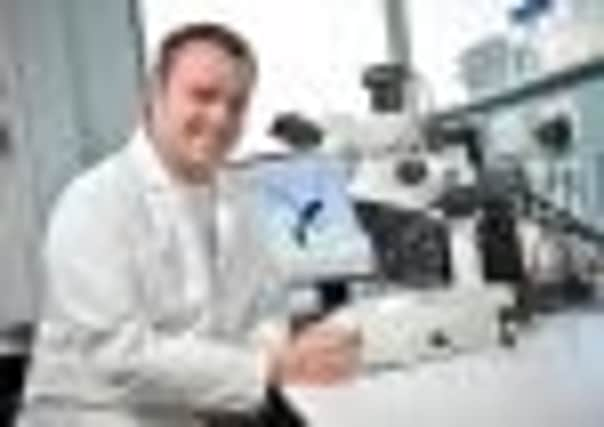Predators could be a farmer’s best friend


Research being carried out at the University of Hull will help farmers to accurately and quickly assess levels of parasitism by insect predators, which control crop destroying pests such as aphids – a process which is currently time-consuming and unreliable.
A comprehensive reference collection of aphids and leaf-mining insect pests, and their associated insect predators, including hundreds of varieties of tiny parasitoid wasps, will be developed.
Advertisement
Hide AdAdvertisement
Hide AdAphids are one of the most prolific pests affecting crop production, substantially reducing yields and making them more vulnerable to disease. An adult parasitoid wasp kills an aphid by injecting an egg inside it and the resulting larvae then consumes the entire body contents. Within a few days, the aphid dies and mummifies as the larva grows larger inside it. After around two weeks, the pupa becomes an adult and eats a hole in the mummified aphid’s body to escape.
The researchers will, in the future, be able to rapidly determine the type and rate of parasitism through examining a sample of pests from a crop. This valuable information will enable the farmer to decide whether or not intervention is needed, thus helping to prevent the overuse of chemical pesticides.
The team hopes that its research will lead to the use of parasites as pest control on open farmland becoming common practice, as it is in agricultural greenhouses.
The two-year project is led by Dr Darren Evans, lecturer in conservation biology in the University of Hull’s Department of Biological Sciences and supported by CASS, the university’s business-facing renewable energy and low carbon hub. The project has a particular focus on food and biofuel crops used by industry in the Yorkshire and Humber region.
Advertisement
Hide AdAdvertisement
Hide AdDr Evans said: “Developing this system will let us detect insect parasitism rates so that we can better manage and enhance the environment. Using this approach, we will be able to predict pest outbreaks, reduce pesticide use and have an improved understanding of how to better manage the countryside for natural pest control. It will facilitate precision agriculture through maximising predictions and forecasts and will provide farmers with significant savings.
“The aim is to try to find win-win solutions both for farmers and biodiversity. It doesn’t have to be an either/or situation.”
As a key part of the project, the team will carry out a major warming experiment from spring 2013 at Stockbridge Technical Centre, Selby. Using huge infra-red heaters positioned over a wheat crop, the project will examine the effect of climate change scenarios on plant-insect interactions.